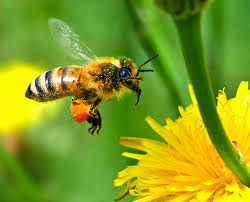Bees again
The cross-parliamentary Environmental Audit Committee has today published what they think about the Government’s draft National Pollinator Strategy, a document in part designed to respond to huge concern over mounting evidence about the effects of agricultural chemicals on the insects that pollinate our food crops.
 It seems like the EAC aren’t too impressed with what Government is proposing. They seem to have two fundamental concerns:
It seems like the EAC aren’t too impressed with what Government is proposing. They seem to have two fundamental concerns:
1. Government are happy to let industry fund more research on the effect of pesticides on pollinators. Instead, research should be funded by Government, so as it is independent of industry interests. We can’t have industry funding the very research that is meant to objectively determine that industry’s impact on nature.
2. Government have yet to clearly and definitively accept an EU ban on neonictinoid pesticides (the draft Strategy would have been a place to do it). So, when the EU ban on these chemicals comes up for review next year it is unclear if the Government will support maintaining the ban or try to get it overturned. In late 2013 Government opposed the ban, saying there was not clear enough evidence on the effects of these chemicals.
The EAC published its own report in 2013 recommending that Government accept the ban, stating:
“laboratory studies raised serious concerns about the potential effect of neonicotinoid insecticides on bees.”
and…
“Neonicotinoid pesticides are not fundamental to the general economic or agricultural viability of UK farming”
A separate study by Greenpeace earlier this year conclude that there is a “need to progressively reduce and eliminate the exposure of bees to the cocktail of toxic agrochemicals to which they may be exposed throughout their lifecycle, and to move towards ecological farming methods.”
Government is playing with risk here – the risk of wiping out pollinators vs the risk of rocking the boat of good relations with the agricultural industry. As ever, we need to make sure our voices are heard and their decision comes down on the side of the environment.
